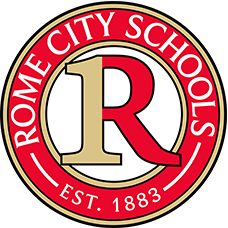Student Services
Positive Behavior Intervention Support (PBIS)
Positive Behavioral Interventions and Supports (PBIS) is an evidence-based, data-driven framework proven to reduce disciplinary incidents, increase a school’s sense of safety and support improved academic outcomes.
All Rome City schools implement PBIS!
GaDOE PBIS Recognition Statuses for FY24
Distinguished
East Central Elementary
Anna K. Davie Elementary
Operational
Rome High
Emerging
Rome Middle
West End Elementary
West Central Elementary
Elm Street Elementary
Main Elementary
